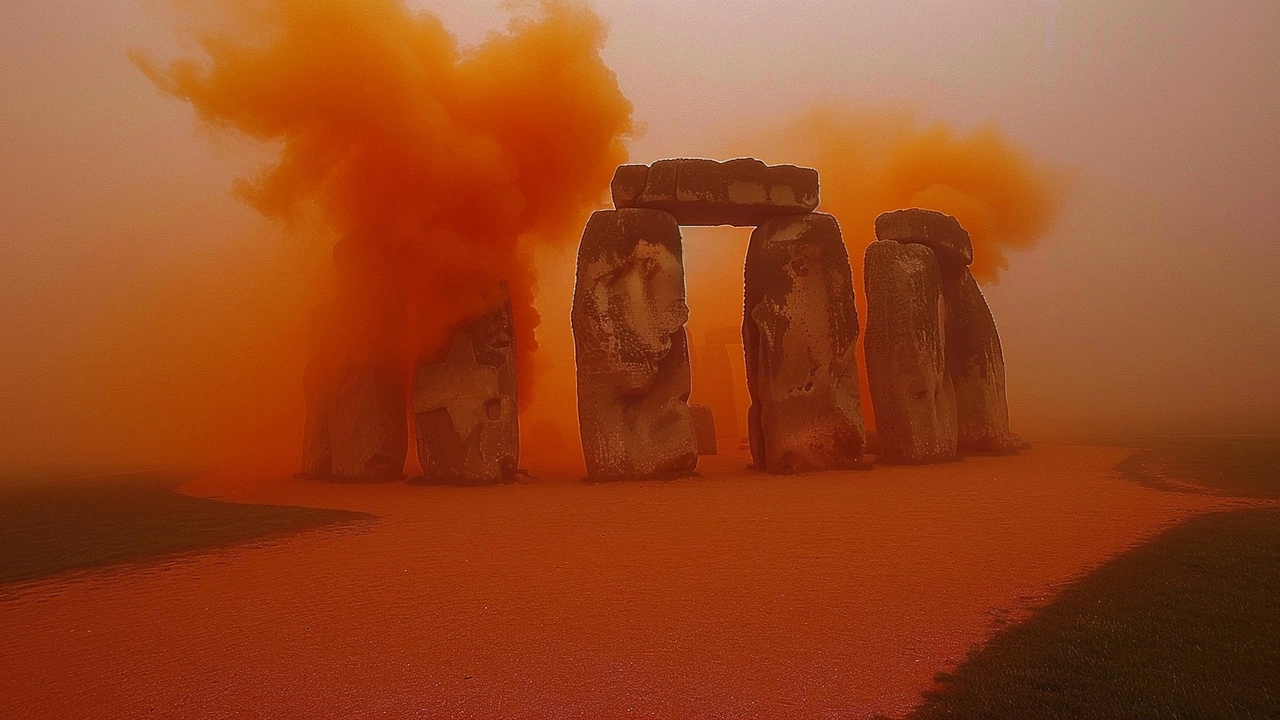Just Stop Oil: the basics and why it matters
You've probably heard the name Just Stop Oil popping up in news feeds and on the streets of the UK. In short, it's a group of everyday people who are fed up with oil companies pushing projects that melt ice, flood towns, and lock us into a fossil‑fuel future. They organise peaceful protests, block entrances, and use eye‑catching stunts to force a real talk about climate change.
Why should you care? Because the actions they target – new oil pipelines, fracking sites, and expansion of existing refineries – directly affect air quality, local jobs, and the planet’s temperature. When the group disrupts a high‑profile event, it isn’t just for drama; it’s a way to make decision‑makers hear a louder, clearer voice from the public.
How the protests work
Most Just Stop Oil protests follow a simple recipe: a clear demand, a visible location, and a non‑violent approach. Volunteers often wear bright shirts, hold signs that read things like “No new oil” or “Climate justice now,” and sometimes chain themselves to doors or hang banners from billboards. Police may be present, but the goal is to stay peaceful and keep the message front and centre.
If you spot a protest, you’ll notice the group provides short briefings on what they’re opposing. They hand out leaflets, share facts about carbon emissions, and point to alternatives such as renewable energy projects. The whole idea is to turn a moment of disruption into a learning opportunity for passers‑by.
Ways you can help
Getting involved doesn’t mean you have to stand in front of a museum or risk a fine. Start by learning the facts. Visit the Just Stop Oil website, read their latest press releases, and follow them on social media. Knowing the specifics – like which pipeline is slated for approval – lets you speak confidently when friends ask.
Next, consider joining a local action. Many cities have volunteer groups that meet weekly to plan protests, design signs, or do door‑to‑door outreach. Even a couple of hours a month can make a big difference when you have a team of motivated people.
If you’re not ready for a protest, you can still show support by signing petitions that call for a stop to new oil licences, or by writing to your MP with a clear ask: “Tell the government to reject the new oil licence for XYZ site.” Simple, direct letters have swayed decisions before.
Another low‑effort option is to reduce your own oil footprint. Switch to public transport, bike when you can, and think about cutting back on single‑use plastics. When you live a greener lifestyle, you become part of the story you want to tell.
Finally, spread the word. Share a post, bring up the issue at a community meeting, or host a small talk at a local café. The more people hear about Just Stop Oil, the harder it becomes for politicians to ignore the demand for change.
In short, Just Stop Oil is about turning frustration into action. Whether you march, sign a petition, or simply talk about the issue, every effort adds up. The climate won’t wait, and neither should you.
 21 June 2024
21 June 2024
Just Stop Oil Activists Target Stonehenge with Orange Paint to Push for Fossil Fuel Ban
Two Just Stop Oil supporters vandalized Stonehenge with orange powdered paint to protest against fossil fuels. The incident took place on June 19, a day before the Summer Solstice. The activists demand the government sign a treaty to phase out fossil fuels by 2030. The event has sparked a debate on the methods used in climate activism.
Latest Posts
-

No Reviews for 'Wicked: For Good' Yet — Release Imminent, Embargo Holds Critics at Bay
-

Travis Head's 123 and Starc's 10-wicket haul crush England in record-breaking Ashes win at Perth
-

Barcelona Names Hansi Flick as New Manager: Club Faces New Era
-

Luxury Motorbike?
-

What is the purpose of doing a burnout?
0